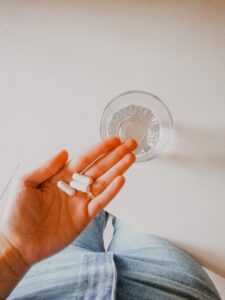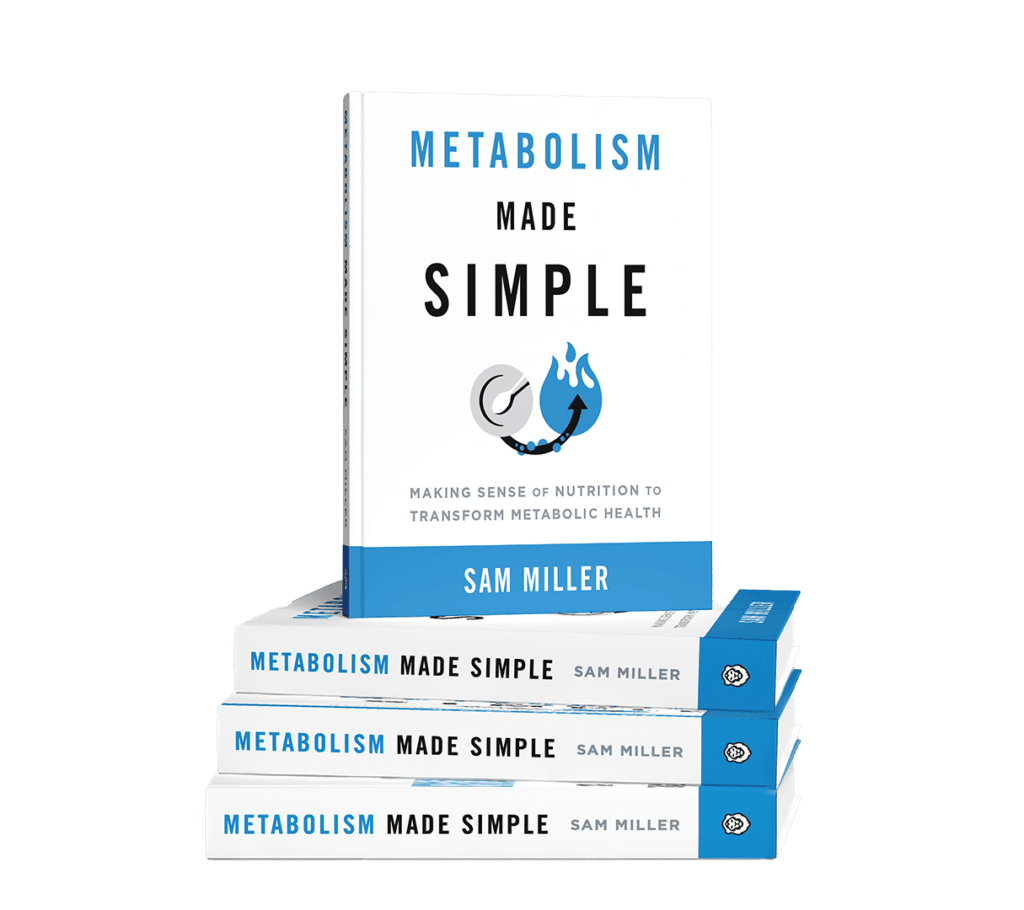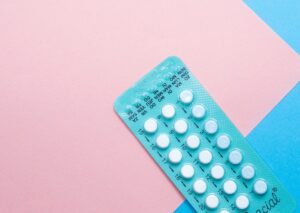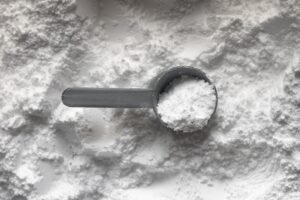Anyone who has dieted before or attempted to diet knows of the annoyance of water retention and how confusing and frustrating it can be.
Let’s say you’ve been dieting religiously; weighing and measuring every ounce of food that goes into your body to ensure you’re in a deficit, yet when you step on the scale, you’re up 4 lbs from 3 days ago, and your stomach looks even jigglier than it did a week ago.
What’s going on here?
The answer is likely excess water retention (sometimes referred to as fluid retention or fluid buildup).
Many different factors contribute to water retention from hormonal responses, electrolyte imbalances, and much more.
Buckle up, because we’re about to dive into a masterclass on water retention.
Table of Contents
The Negatives of Water Retention
Water retention can easily cause second-guessing of your current plan and negative emotions that can lead to the “screw it” effect and make you go off plan.
Even to those who are informed about normal fluctuations and causes, water retention during dieting can still mess with your head. This is one of the values of having a coach, even if you’re a coach yourself. If you’re prone to negative emotions or thought patterns, an objective set of eyes can go a long way to keep you on track.
Water retention is also the main reason that a smart coach would advise weighing on the scale every morning in the same conditions while emotionally distancing yourself from that number.
Since water weight fluctuates daily, we need to pay attention to 7-day averages of weight and compare the last 7-day average to the current 7-day average to determine if you’re making progress.
Fluid Retention Impacts Blood Pressure
Besides vanity reasons, water retention can be concerning because it can contribute to high blood pressure in some contexts.
If someone is lean and otherwise healthy, the effect probably won’t be noticeable. However, if someone is overweight or has a history of blood pressure issues, water retention has the potential to further increase blood pressure.
One of the factors contributing to blood pressure is just how much fluid volume you have within your arteries. If there’s more fluid retention, there’s more volume pushing against those arteries, potentially increasing blood pressure.
Let’s dive into the root causes of water retention. Some of these we can’t necessarily do anything about, but knowing they exist can keep your emotions calibrated during a fat-loss phase.
Causes of Water Retention
The first thing we have to understand is that whole body water balance is mainly determined by 3 different hormones, and then there’s a significant amount of upstream hormones and factors that can modify these root hormones, which can cause water retention.
Not every cause of water retention works through these hormones, but many do, so let’s talk about these first, and then we’ll identify lifestyle factors and other hormones that modify levels of these.
Antidiuretic hormone (ADH)
Also known as vasopressin or arginine vasopressin, ADH is secreted by the posterior pituitary and acts through the kidneys to reabsorb water back into circulation.
For example, drinking alcohol inhibits the release of ADH, which is why you start peeing like nobody’s business after a couple of drinks.
Aldosterone
Aldosterone is normally released in situations of low blood pressure or dehydration and acts on the kidneys to increase sodium retention and facilitate potassium excretion. When more sodium is retained, it draws fluid with it, causing fluid retention.
Atrial Natriuretic Peptide (ANP)
ANP does the opposite of aldosterone in some ways. When the heart senses a higher stretch against its walls than is necessary, as well as high systemic blood pressure, it releases ANP, which acts at the kidneys to increase their filtration rate and excrete sodium and water, which has the effect of decreasing blood pressure.
Now that you have an understanding of the three main hormones, let’s dive into the lifestyle and physiological aspects that can modify these three, causing water retention.
Chronic Stress
When I say chronic stress, I’m referring to both physical and psychological stress; cortisol does not discriminate between the two. Dieting is part of this physical stress; even if the calorie level is appropriate, we can easily get water retention. This is especially true if calories are cut too much, too soon.
The Minnesota Starvation Experiment is a great example of this. Ancel Keys led this particular study to look at the physiological effects of starvation. It involved 36 men over 6 months. The men were doing hard physical labor and had baseline calorie expenditures of around 3,200 calories. When the study began, they were cut to 1,500 calories a day and maintained the routine of hard labor.
During the first few months, researchers noted steady weight loss, usually about 2–4 lbs a week, depending on the individual. After about 2 months, however, weight loss became extremely non-linear. The researchers noted that all of the men’s scale weights would be stable for 1–3 weeks, and one morning they’d wake up and be many pounds lighter.
This is the “whoosh effect” that anyone who’s dieted extensively will know very well. This occurred at random during the experiment but always occurred after a high-calorie meal.
For example, at the halfway point of the study, the researchers gave participants a 2,300-calorie meal in addition to their baseline daily calories (1500) as a kind of “celebration” of being halfway done, and everyone woke up 3–4 lb lighter the next morning.
Anyone done a serious fat-loss diet can relate to this. You’re dieting and it’s going well, but then all of a sudden, you start to look worse and even jigglier than you were before. A refeed, or a day of much higher calories, usually causes the whoosh effect in this situation.
As you’re dieting, you’ll have steadily increasing levels of basal cortisol, epinephrine, and norepinephrine. Mechanistically, one of the things that’s causing the water retention in this situation is actually cortisol itself. Cortisol, in higher concentrations, can bind to the receptor that aldosterone normally does and cause sodium and fluid retention.
Interestingly, in isolated test tube cell experiments, cortisol has been shown to inhibit ADH (the hormone that normally conserves water).
However, in humans, during conditions of psychological stress, both cortisol and ADH increase significantly. Remember, it’s an ANTIdiuretic hormone, meaning if it’s low, it will cause water wasting, and if it’s high, it will cause water retention.
In any situation where you have increased cortisol for longer periods of time, you might be retaining extra fluid; another example is if you’re getting consistently poor sleep.
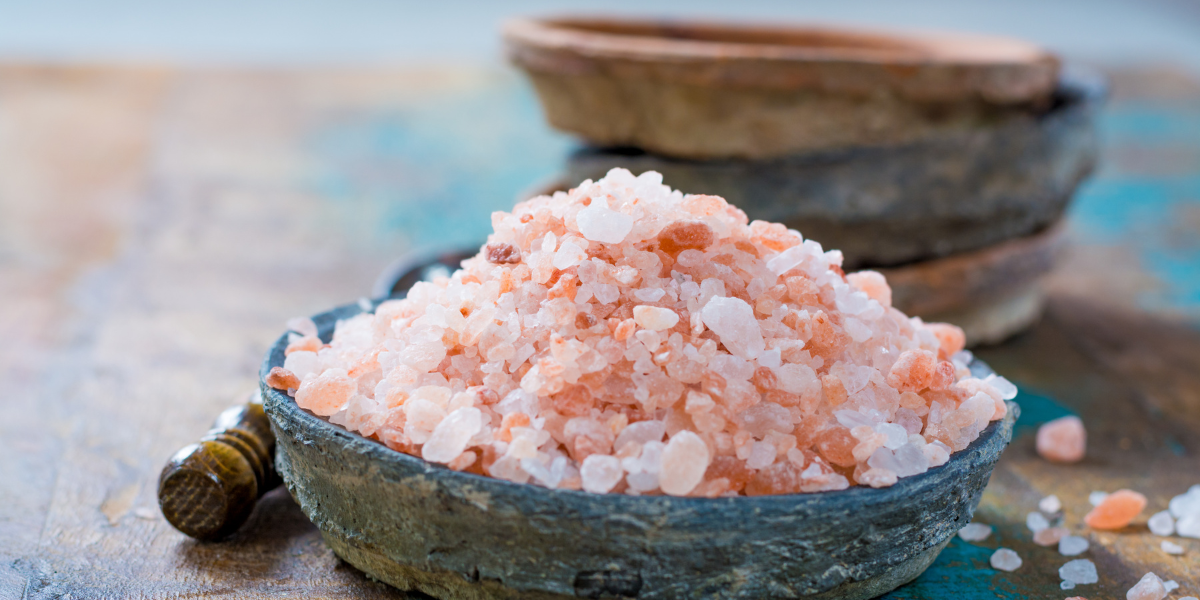
Potassium and Sodium Levels
While many mechanisms of fluid retention from the other causes are generated by increased retention of sodium at the kidney, it also makes sense that too much sodium will also cause water retention.
When you have a lot of sodium in the interstitial fluid (space between the cells; usually what causes the jiggly-puffy look), it’s going to draw water with it. Your body has a homeostatic set point with sodium consumption, meaning it gets used to whatever sodium level you’re taking in and minimizes water retention because of this.
However, when you have a large dose of sodium that exceeds the current salt balance in your body, in order to excrete the excess sodium, the kidneys concentrate sodium for excretion.
How do you increase the concentration of a molecule in a liquid? By removing liquid; think about making a balsamic reduction.
The kidney reabsorbs significant amounts of water to concentrate sodium for excretion, leading to fluid buildup until the excess sodium is out, after which it increases water excretion as well.
This mainly comes into play with a “cheat meal” or meal that is outside of your general plan that may have higher sodium levels than you’re used to.
Higher Carb Intake
Continuing on with the cheat meal example, chances are that the cheat meal had both a boatload of sodium which is going to influence water retention, but probably also a boatload of carbohydrates.
Carbohydrates can increase water retention by a few mechanisms. The increase of intracellular fluid through glycogen storage. When carbohydrates are stored, they’re stored with water.
What’s probably the real culprit of the puffiness, though, is that the high insulin levels resulting from the large amount of carbohydrates will directly act on the kidneys to increase sodium reabsorption.
Chronic hyperinsulinemia or insulin resistance from excess calories and excess carbohydrates also increases the action of aldosterone in the kidneys, so you have a one-two punch of sodium retention and water retention.
Inflammation
When inflammation is present, the body releases histamine. Histamine causes the gaps between the cells of the capillary walls to widen. This is to make room for white blood cells to come in to fight any infection. This is a normal process during acute injury and swelling.
However, if you have inflammation throughout your body, the capillary walls can widen, even without white blood cells being present. This widening of the capillary walls can lead to a small amount of fluid leaking into the space between cells, known as the interstitial space. This fluid leakage can contribute to a puffy appearance.
Other conditions that parallel systemic inflammation may also cause a one-two punch; metabolic syndrome, for example. Hyperinsulinemia causes sodium retention at the kidney level, plus the presence of systemic inflammation results in even more excess fluid.
If you’ve had very overweight clients with significant metabolic syndrome or type 2 diabetes, you may have noticed that when they first started losing fat that the initial water drop during the first week or two was much larger than your average client; sometimes topping 12-15 pounds.
Estrogen
This is particularly relevant around that time of the month. Estrogen mainly acts to lower the thermostat when ADH releases.
Normally, ADH is secreted when plasma sodium reaches a certain level. As estrogen rises, it lowers the threshold of plasma sodium, then ADH is released to retain water. It also has a small effect on the renin-angiotensin system, which contributes to water retention as well.
Progesterone, on the other hand, acts as a natural diuretic, so when a woman has hormonal imbalances, mainly the common occurrence of high estrogen relative to progesterone, she’ll experience significantly more water retention during certain times of her cycle than a woman with balanced hormones.
When someone has hormonal imbalances, it can make them more emotionally reactive and less resilient to psychological stress. This, combined with other factors, can have an impact on their emotional well-being and how they respond to stressful situations, which can increase water retention through cortisol as well.
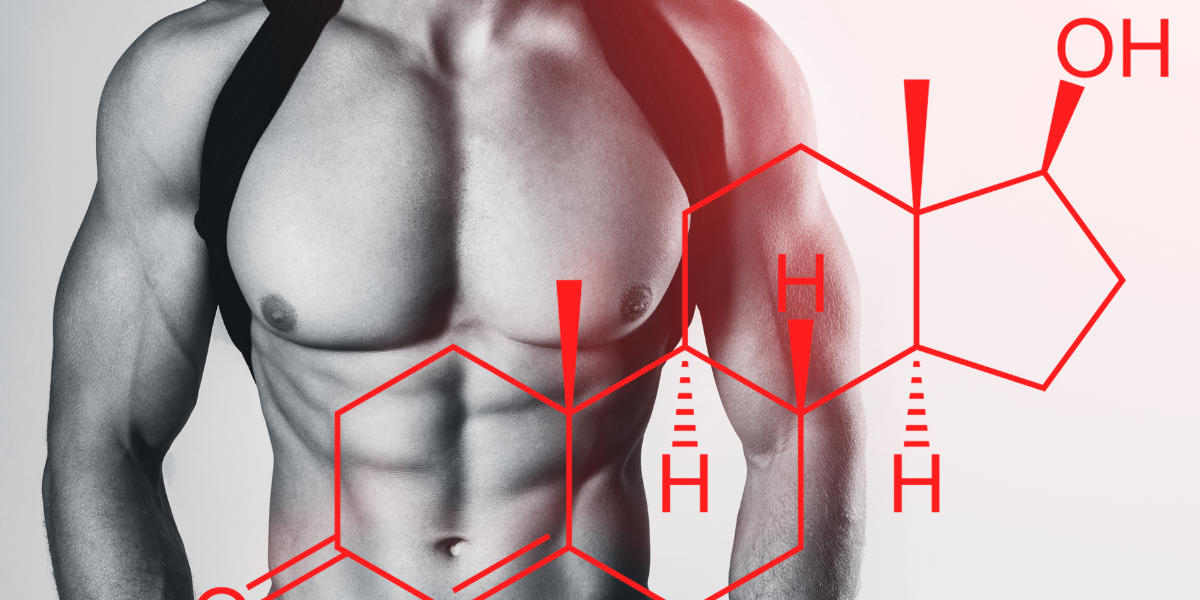
High Testosterone and Other Anabolic Steroids
Testosterone in normal concentrations in the body won’t cause any excess fluid buildup. It does have an influence on ADH, but the variations in men day to day are minimal, and thus testosterone does not normally contribute to daily changes in body water.
This changes, however, when someone begins to use high levels of injectable testosterone or other anabolic steroids.
Greater than normal levels of many androgens can increase renin-angiotensin-aldosterone system signaling and, therefore, aldosterone, which causes significant sodium retention. People using anabolic steroids will be significantly more sensitive to changes in dietary sodium as far as water retention goes.
This can also contribute to the high blood pressure that some androgen users experience, and why many bodybuilders choose angiotensin receptor blockers (ARBs) like Telmisartan to combat this since it directly targets the system that becomes hyperactive with androgen use.
The last point to consider is that higher levels of testosterone will also mean higher levels of estrogen via aromatase, and as I discussed in the last point, estrogen has a greater influence on increasing ADH than testosterone.
High Levels of Growth Hormone
Abnormal levels of growth hormone can also cause significant amounts of water retention through two of the main hormones: aldosterone and ADH.
Most of the studies done to examine this were on patients with acromegaly, which is increased growth hormone secretion through either a growth hormone-secreting tumor or another mechanism.
Just know that if you’re choosing to use HGH as either a competitive drug or just for anti-aging purposes as you get older, this might come with a bit of water retention.
Not Drinking Enough Water
When your body senses that it’s low on fluid, it has many water conservation mechanisms in place.
This involves all three of the hormones we previously mentioned. When the body senses low fluid, it will increase aldosterone and ADH and decrease ANP, switching all the levers for increased fluid retention.
The solution here is easy: Drink enough water!
Medications
Finally, let’s address a list of medications that could also facilitate water retention:
- Certain hormonal birth control
- Testosterone replacement therapy
- NSAIDs
- Calcium channel blockers (blood pressure medications – Amlodipine, Bepridil, Diltiazem)
- Prednisone and other corticosteroids
- Certain diabetes medications (Pioglitazone and rosiglitazone, as well as insulin therapy)
Integration and Conclusion
Water retention can be seriously frustrating, especially when it’s masking your hard-earned fat loss. Arming yourself with the knowledge of its causes, though, can let you know when you might be experiencing it, which can calm your mind and keep you on plan.
Many of these causes we can make lifestyle changes to deal with the root cause, such as excess sodium consumption, female hormonal imbalances, and inflammation, but others are going to be inevitable. You’ll just have to wait out the water retention from dieting heavily or consuming a cheat meal.
The most important part is to not let it affect you too much psychologically while you’re on plan; remember to focus more on the 7-day daily averages of scale weight. If your weight went up 2–3 pounds overnight, it’s nearly guaranteed that it was just water weight fluctuation.
References
Kojima S, Inoue I, Hirata Y, Saito F, Yoshida K, Abe H, Deguchi F, Kawano Y, Kimura G, Yoshimi H, et al. Effects of changes in dietary sodium intake and saline infusion on plasma atrial natriuretic peptide in hypertensive patients. Clin Exp Hypertens A. 1987;9(7):1243-58. doi: 10.3109/10641968709160047. PMID: 2957126.
Luft FC, Rankin LI, Bloch R, Willis LR, Fineberg NS, Weinberger MH. The effects of rapid saline infusion on sodium excretion, renal function, and blood pressure at different sodium intakes in man. Am J Kidney Dis. 1983 Jan;2(4):464-70. doi: 10.1016/s0272-6386(83)80079-1. PMID: 6823962.
Sagnella GA, Markandu ND, Buckley MG, Miller MA, Singer DR, MacGregor GA. Hormonal responses to gradual changes in dietary sodium intake in humans. Am J Physiol. 1989 Jun;256(6 Pt 2):R1171-5. doi: 10.1152/ajpregu.1989.256.6.R1171. PMID: 2525347.
Dugué B, Leppänen EA, Teppo AM, Fyhrquist F, Gräsbeck R. Effects of psychological stress on plasma interleukins-1 beta and 6, C-reactive protein, tumour necrosis factor alpha, anti-diuretic hormone and serum cortisol. Scand J Clin Lab Invest. 1993 Oct;53(6):555-61. PMID: 8266000.
Albåge A, van der Linden J, Bengtsson L, Lindblom D, Kennebäck G, Berglund H. Elevations in antidiuretic hormone and aldosterone as possible causes of fluid retention in the Maze procedure. Ann Thorac Surg. 2001 Jul;72(1):58-64. doi: 10.1016/s0003-4975(01)02688-1. PMID: 11465231.
Judith A. Whitworth, George J. Mangos, and John J. Kelly. Cushing, Cortisol, and Cardiovascular Disease. Originally published1 Nov 2000https://doi.org/10.1161/01.HYP.36.5.912Hypertension. 2000;36:912–916
S.G. Ruginsk et al. Central actions of glucocorticoids in the control of body fluid homeostasis: Review. • Braz J Med Biol Res 42 (1) • Jan 2009 • https://doi.org/10.1590/S0100-879X2009000100010
Espiner EA. The effects of stress on salt and water balance. Baillieres Clin Endocrinol Metab. 1987 May;1(2):375-90. doi: 10.1016/s0950-351x(87)80068-x. PMID: 3327497.
Rakova N, Kitada K, Lerchl K, Dahlmann A, Birukov A, Daub S, Kopp C, Pedchenko T, Zhang Y, Beck L, Johannes B, Marton A, Müller DN, Rauh M, Luft FC, Titze J. Increased salt consumption induces body water conservation and decreases fluid intake. J Clin Invest. 2017 May 1;127(5):1932-1943. doi: 10.1172/JCI88530. Epub 2017 Apr 17. PMID: 28414302; PMCID: PMC5409798.
Stachenfeld NS. Sex hormone effects on body fluid regulation. Exerc Sport Sci Rev. 2008 Jul;36(3):152-9. doi: 10.1097/JES.0b013e31817be928. PMID: 18580296; PMCID: PMC2849969.
Dimke H, Flyvbjerg A, Frische S. Acute and chronic effects of growth hormone on renal regulation of electrolyte and water homeostasis. Growth Horm IGF Res. 2007 Oct;17(5):353-68. doi: 10.1016/j.ghir.2007.04.008. Epub 2007 Jun 7. PMID: 17560155.




